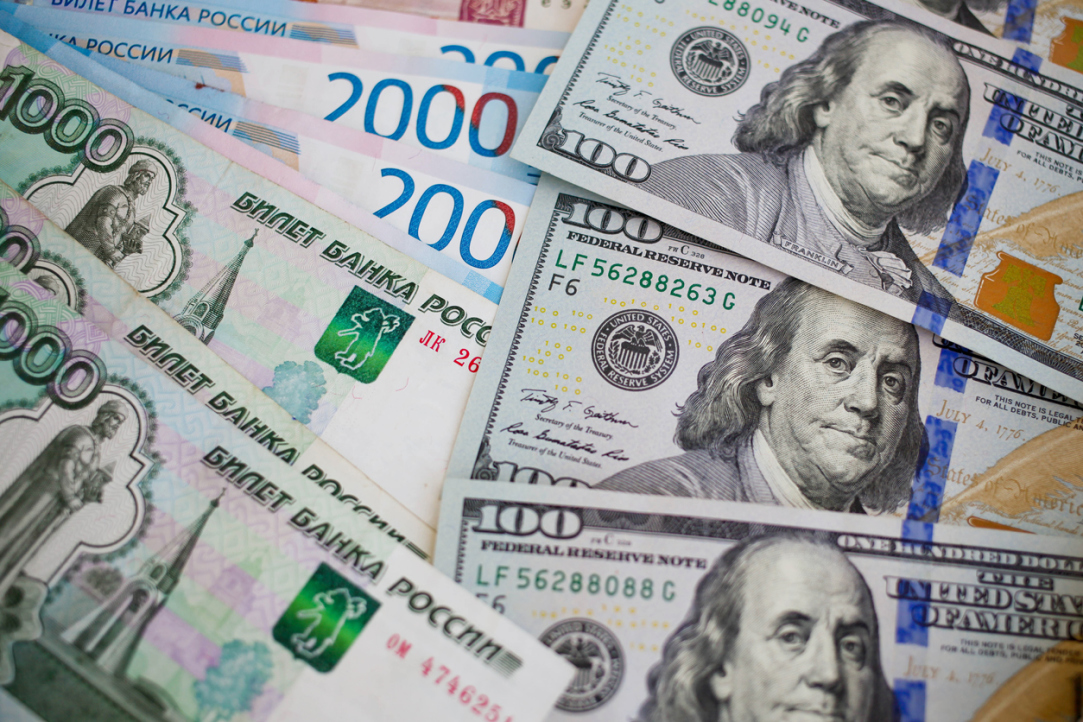- A
- A
- A
- ABC
- ABC
- ABC
- А
- А
- А
- А
- А
- HSE University
- Faculties
- Faculty of Economic Sciences
- School of Finance
- News
- Researchers Find a Connection Between Trump’s Tweets and the Exchange Rate of the Rouble
-
The School
-
RESEARCH ACTIVITIES
- Laboratories
- Series “Advanced studies in emerging market’s finance” at Springer Nature o Networking with international academic associations
- Networking with international academic associations
- Research seminars
- International PhD workshop
- The International Seminar «ESG Transformation»
-
RESEARCH WORKING GROUPS
- Research Working Group "Innovations in the banking sector, its financial stability and prudential regulation"
- BUSINESS EDUCATION
- Networking with business associations
- Networking with professional associations
- Center for Research on Non-Financial Reporting
-
DATABASES
119049 Moscow, Russia
11 Pokrovskiy boulevard, room S629
Phone:
+7 (495) 772-95-90*27447, *27947, *27190
+7 (495) 916-88-08 (Master’s Programme Corporate Finance)
- Email: df@hse.ru
Head of Corporate Finance Research Center, Dr., tenured professor

+7495-772-95-90 (add. 27447)

+7495-772-95-90 (add. 27947)
The HSE School of Finance is the leading Russian competence center in the field of corporate finance, business valuation, banking, stock market, risk management and insurance, accounting and audit.
HSE is the first Russian university in the global ranking "QS - World University Rankings by subject", 2022 in the subject area of Accounting and Finance. Moreover, the university is the 1-st in the rating "THE World University Rankings by subject" in the subject area of Business & Management Studies, 2022
Cherkasova V. A., Nenuzhenko I.
Journal of Economic Integration. 2022. Vol. 37. No. 1. P. 54-92.
Electronic Journal of Applied Statistical Analysis. 2022. Vol. 15. No. 1. P. 187-210.
Kolade S. A., Semenova M.
Financial Economics. FE. Высшая школа экономики, 2022. No. WP BRP 87/FE/2022.
Управление финансовыми рисками. 2022. Т. 70. № 2. С. 108-120.
In bk.: The 8th International Conference on Information Technology and Quantitative Management (ITQM 2020 & 2021): Developing Global Digital Economy after COVID-19. Vol. 199: The 8th International Conference on Information Technology and Quantitative Management (ITQM 2020 & 2021): Developing Global Digital Economy after COVID-19. Manchester: Elsevier, 2022. P. 798-805.
Korablev D., Poduhovich D.
Journal of Corporate Finance Research. 2022. Vol. 16. No. 1. P. 136-145.
Olkhovik V., Lyutova O. I., Juchnevicius E.
Научно-исследовательский финансовый институт. Финансовый журнал. 2022. Vol. 14. No. 2. P. 73-90.
Churyk N. T., Anna Vysotskaya, Kolk B. v.
Journal of Accounting Education. 2022. Vol. 58.
Абдрахманова Г. И., Васильковский С. А., Вишневский К. О. и др.
М.: Издательский дом ГУ-ВШЭ, 2022.
Абдрахманова Г. И., Васильковский С. А., Вишневский К. О. и др.
М.: Национальный исследовательский университет "Высшая школа экономики", 2022.
Гришунин С. В., Сулоева С. Б., Пищалкина И. И.
Организатор производства. 2022. Т. 30. № 1. С. 60-72.
Гришунин С. В., Сулоева С. Б., Пищалкина И. И.
Экономический анализ: теория и практика. 2022. Т. 21. № 3. С. 478-496.
S. Grishunin, E. Naumova, N. Lukshina et al.
Russian Management Journal. 2021. Vol. 19. No. 4. P. 475-493.
Journal of Corporate Finance Research. 2022. Vol. 16. No. 1. P. 99-112.
Grishunin S., Bukreeva Alesya, Alyona A.
In bk.: The 8th International Conference on Information Technology and Quantitative Management (ITQM 2020 & 2021): Developing Global Digital Economy after COVID-19. Vol. 199: The 8th International Conference on Information Technology and Quantitative Management (ITQM 2020 & 2021): Developing Global Digital Economy after COVID-19. Manchester: Elsevier, 2022. P. 190-197.
 International Conference “Future Directions in Accounting and Finance Education”, 27-28 May 2019, Moscow, Russia
International Conference “Future Directions in Accounting and Finance Education”, 27-28 May 2019, Moscow, Russia
Edited by: А. Б. Высотская, B. v. Kolk.
Vol. 58. Elsevier, 2022.
Karamysheva M., Seregina E.
Journal of International Money and Finance. 2022. Vol. 127.
In press
Journal of Economic Dynamics and Control. 2022. Vol. 137.
Karamysheva M., Skrobotov A.
Journal of Economic Dynamics and Control. 2022. Vol. 138.
Известия Санкт-Петербургского государственного экономического университета. 2022. № 4. С. 144-155.
Тихомиров Д. В., Цехомский Н. В.
Экономика и управление. 2022. Т. 28. № 1. С. 16-24.
Селезнёва З. В., Евдокимова М. С.
Финансы: теория и практика. 2022. Т. 26. № 3. С. 64-84.
Evdokimova M., Stepanova A. N.
In bk.: 38th EBES Conference - Program and Abstract Book. Istanbul: EBES, 2022. P. 39.
Assanskiy A., Shaposhnikov D., Tylkin I. et al.
Journal of Behavioral and Experimental Economics. 2022. Vol. 98.
Teplova T., Mikova E., Munir Q. et al.
Economic Change and Restructuring. 2023. Vol. 56. No. 1. P. 515-535.
Повх К. С., Кокорева М. С., Степанова А. Н.
Экономический журнал Высшей школы экономики. 2022. Т. 26. № 1. С. 9-36.
Anton Markov, Zinaida Seleznyova, Victor Lapshin.
Journal of Finance and Data Science. 2022. Vol. 8. P. 180-201.

Researchers Find a Connection Between Trump’s Tweets and the Exchange Rate of the Rouble

Tweets about Russia by Donald Trump during his presidency caused short but noticeable depreciations of the rouble. Meanwhile, the introduction of new sanctions, upon which the president did not comment, had no such effect. This was the finding of a group of researchers, which included Elena Fedorova, Professor of the Faculty of Economic Sciences of HSE University. The group published their findings in in the Journal of Economic Behavior and Organization.
With the growing influence of social media, officials, politicians, and entrepreneurs increasingly express their positions on various issues directly (for example, using Facebook or Twitter), and their messages serve as an independent source of financial and business information. When global political and economic processes depend on the decisions of this person (as in the case of the President of the United States), their social media posts can even affect indicators such as oil prices or the rouble exchange rate. Researchers have already examined the impact of Trump’s tweets on the stock market.
To see if there is a connection between the former US president’s tweets and the exchange rate of the Russian currency, researchers collected 5,548 of Trump’s tweets posted from October 2016 to August 2018. Of these, the authors chose those that mentioned Russia, Moscow, the Kremlin, sanctions, the rouble, and other key words. For the remaining 296 tweets, they rated the tonality of the text (neutral, positive, or negative; those falling in the latter category were the most frequent).

Elena Fedorova, article co-author and professor of economics at HSE University
To assess the tonality of the English-language tweets, we used five already proven dictionaries, and as part of a textual analysis project group with undergraduate and graduate students, we are working on a toolkit for assessing economic and financial texts in Russian. So, I think there will be similar studies on the Russian market.
Using mathematical methods, the authors of the study assessed the impact on the rouble exchange rate of several control variables reflecting oil prices; Central Bank policy; the intensity of sanctions imposed by the United States, the European Union, and other states; and the attention of the media to relations between Russia and Western countries. These were considered beyond the period of the tweets to make sure that the rouble exchange rate was in fact responding specifically to the tweets, and not these other factors.
The researchers found that of the two ‘political’ variables (tweets and the degree of sanctions), only the tweets affected the exchange rate. The authors of the work highlighted several episodes when, after Trump tweeted anti-Russia statements, the rouble exchange rate dropped and the drop lasted for several days. The researchers note that all these episodes coincide with the announcement of new sanctions. However, in cases where sanctions were introduced, but Trump did not comment on them on Twitter, the rouble did not fall.
Calculations of both Russian and foreign researchers show that if sanctions affect the Russian economy, they do so to a much lesser extent than fluctuations in oil prices. New research confirms this conclusion and additionally shows that the emotional reaction to the sanctions of various players affects the exchange rate more than the restrictions themselves. Based on the results of the analysis, the authors suggest that the way market participants assess the severity of the new sanctions and their consequences for the Russian economy is rather strongly influenced by the president's tweets and the reaction of the press.
‘Our research, on the one hand, draws upon the contemporary field of behavioural finance. On the other hand, it partially touches upon the philosophical theories of Marxism-Leninism about the role of personality in history (which people of my generation studied both in school and college). Who would have thought more than a hundred years ago that now, with the development of technology for assessing the textual tonality, it would be possible to quantify the impact of statements made by important politicians on the financial and economic market!’ said Elena Fedorova.
Elena Fedorova co-authored the study with Svetlana Ledyaeva (Aalto University School of Business, Finland).
- About
- About
- Key Figures & Facts
- Faculties & Departments
- International Partnerships
- Faculty & Staff
- HSE Buildings
- Public Enquiries
- Studies
- Admissions
- Programme Catalogue
- Undergraduate
- Graduate
- Exchange Programmes
- Summer University
- Summer Schools
- Semester in Moscow
- Business Internship
-
https://elearning.hse.ru/en/mooc/
Massive Open Online Courses
-
https://www.hse.ru/en/visual/
HSE Site for the Visually Impaired
-
http://5top100.com/
Russian Academic Excellence Project 5-100
- © HSE University 1993–2024 Contacts Copyright Privacy Policy Site Map
- Edit


